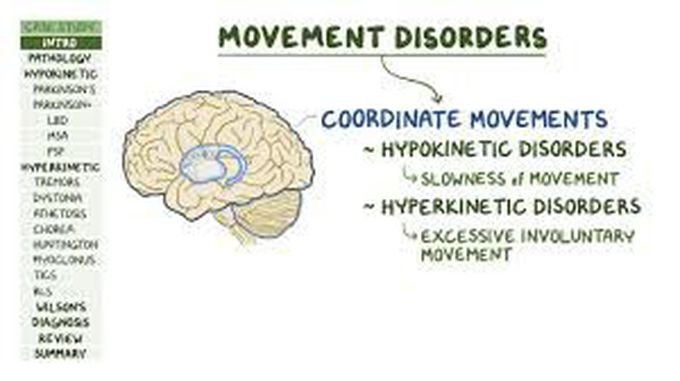


Movement disorders
Movement disorders are a group of nervous system conditions that affect movement. They can cause either increased movements or reduced or slow movements. These movements may be under the person's control, known as voluntary. Or the movements may not be under the person's control, known as involuntary. There are many types of movement disorders that cause different symptoms. For example, dystonia causes muscle contractions that lead to twisting of the body. Another movement disorder called chorea causes brief periods of quick involuntary movements that happen over and over. Parkinsonism causes slowness of movement with stiffness, tremors or loss of balance. Treatments may be available to help manage the symptoms of movement disorders. Depending on the type of movement disorder, medicines, therapies or surgeries may be available. If a condition causes the movement disorder, treating the condition may help improve symptoms.

